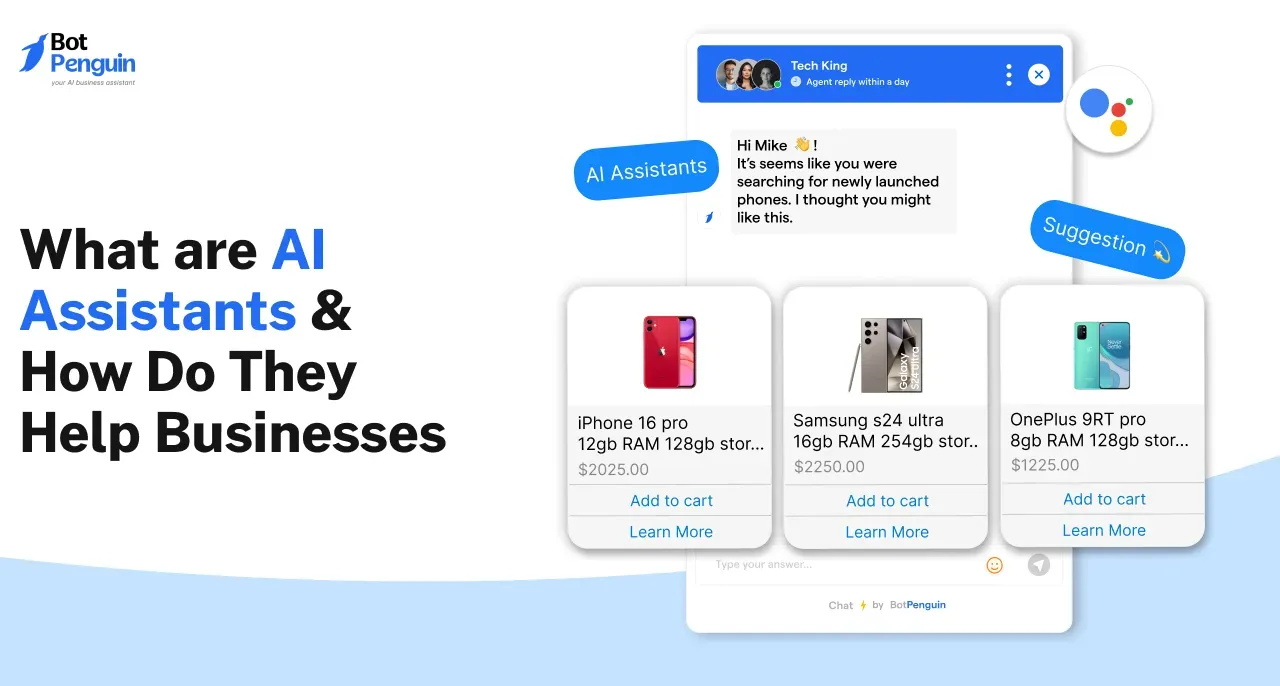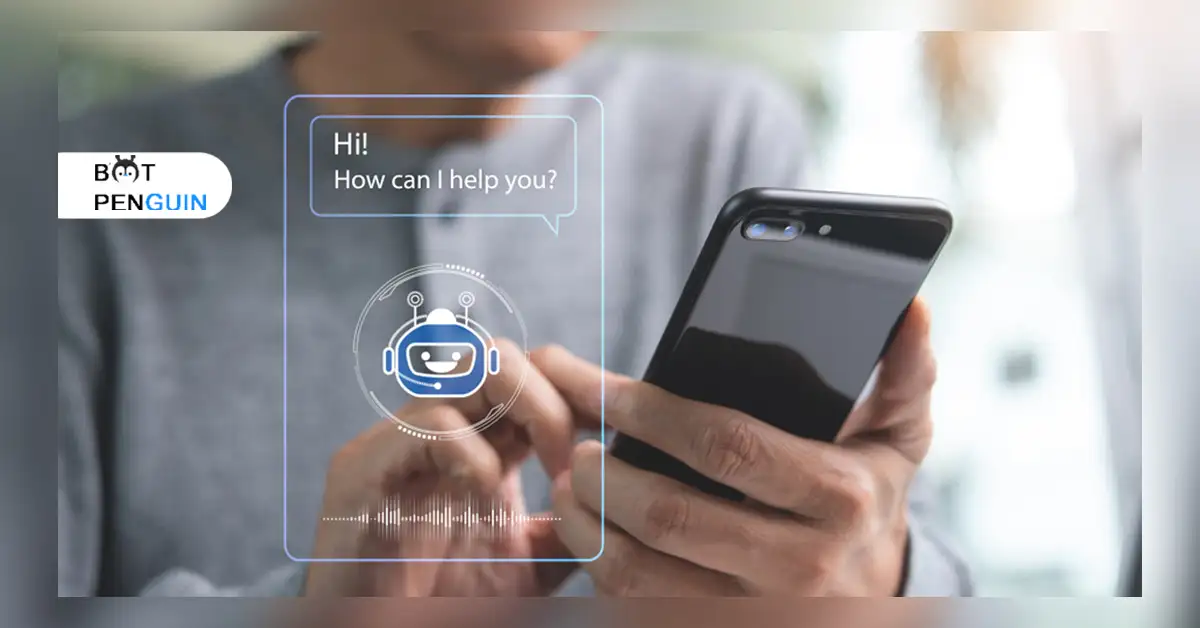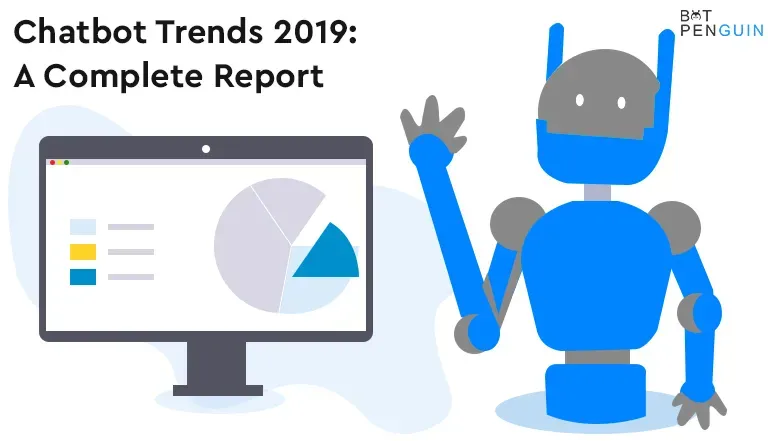Introduction
In today's fast-paced digital world, chatbots have emerged as a game-changer, transforming the way businesses interact with their customers and streamline internal processes.
As chatbot technology continues to evolve, organizations face the critical decision of choosing between open-source and proprietary chatbot solutions.
Both options come with their unique advantages and challenges, making it essential to understand which one aligns best with your business needs and objectives.According to a recent report by Grand View Research, the global chatbot market is expected to reach $10.08 billion by 2026, exhibiting a staggering CAGR of 24.3% from 2019 to 2026.
This growth is fueled by the increasing need for efficient customer service, cost optimization, and the rising adoption of AI-powered technologies. However, with so many chatbot solutions available in the market, it's no wonder that businesses often find themselves grappling with the open-source vs. proprietary dilemma.
Open Source vs. Proprietary Chatbots: An Overview
Open-source chatbots are built on platforms that offer their source code to the public, allowing developers to access, modify, and improve the code as they see fit. This fosters a sense of community, as developers can contribute their expertise and learn from others in the process.
The open-source approach enables greater flexibility and customization, making it an attractive option for businesses looking to create a truly unique chatbot experience.
On the other hand, proprietary chatbots are developed and maintained by specific companies, and their source code is kept under wraps.
This means that you'll need to rely on the company's tools, resources, and support to build and maintain your chatbot. While this may sound limiting, proprietary chatbots often come with a more polished, user-friendly interface and a dedicated support team, making them an appealing choice for businesses seeking a streamlined, hassle-free chatbot experience.
Key Differences Between Open Source vs. Proprietary Chatbots
When it comes to chatbot development, two primary approaches dominate the landscape: open-source and proprietary solutions. Open source chatbots, as the name suggests, are built on publicly available source code that can be freely accessed, modified, and distributed
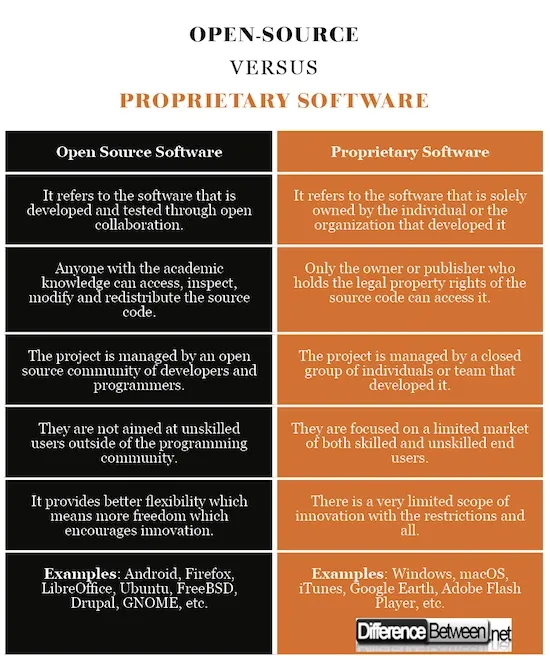
Customizability and Flexibility
Open Source: Open source chatbots provide a high level of customizability and flexibility. You have access to the source code, allowing you to modify and tailor the chatbot according to your specific requirements.
You can add or remove features, integrate with different platforms, and even extend its functionality by leveraging the contributions of the open source community.
Proprietary: Proprietary chatbots, on the other hand, are typically less customizable. The features and capabilities are predetermined by the chatbot provider.
While you may have some configuration options, you have limited control over the underlying code and may be restricted to the features and integrations provided by the proprietary platform.
Cost
Open Source: Open source chatbots are generally more cost-effective as there are no licensing fees associated with using the software. You have the freedom to use, modify, and distribute the chatbot without incurring any additional costs.
However, it's important to consider that customization and maintenance may require technical expertise, which could incur expenses.
Proprietary: Proprietary chatbots often involve licensing fees or subscription plans. The cost of using a proprietary chatbot can vary depending on factors such as the desired features, usage limits, and support options.
While there may be upfront costs, proprietary chatbots often provide additional support and maintenance services, which can be beneficial for non-technical users.
Development and Support
Open Source: Open source chatbots benefit from a vibrant community of developers and contributors. This means you have access to a wide range of resources, documentation, and support forums.
You can tap into the collective knowledge and expertise of the community, making it easier to troubleshoot issues, find solutions, and stay updated with the latest advancements.
Proprietary: Proprietary chatbots usually come with dedicated support from the chatbot provider. They offer professional assistance, documentation, and resources specific to their platform.
If you encounter any issues or need guidance, you can rely on the support team to help you resolve problems and ensure smooth operation.
Security and Privacy
Open Source: Security and privacy considerations may vary in open source chatbots. While the open source nature allows for transparency and community review, it also means that vulnerabilities may be more easily identified.
However, with proper security practices and regular updates, open source chatbots can be as secure as their proprietary counterparts.
Proprietary: Proprietary chatbot providers typically have dedicated teams focused on security and privacy. They implement robust security measures, perform regular security audits, and provide compliance with data protection regulations.
By using a reputable proprietary chatbot, you can benefit from the provider's expertise in securing their platform.
Integration and Compatibility

Open Source: Open source chatbots often offer greater integration possibilities. You have the freedom to integrate the chatbot with different platforms, APIs, and services according to your specific needs.
With open APIs and extensive community contributions, you can connect your chatbot to a wide range of systems, databases, and third-party tools.
Proprietary: Proprietary chatbots may have predefined integrations and compatibility with popular platforms. The providers typically offer integrations with common messaging apps, CRMs, or other business software.
However, the integration options may be limited to the offerings provided by the proprietary platform, potentially requiring additional development or customization.
Learning Curve and Ease of Use
Open Source: Open source chatbots may require a steeper learning curve, especially if you're not familiar with the underlying technologies. You'll need to have some technical knowledge or rely on developers to set up, configure, and maintain the chatbot.
However, once set up, the customization options and flexibility can outweigh the initial learning curve.
Proprietary: Proprietary chatbots are typically designed to be user-friendly and accessible to non-technical users.
They often provide intuitive interfaces, visual builders, and pre-built templates, making it easier to create and deploy a chatbot without extensive technical knowledge. However, the trade-off is the reduced flexibility and customization options.
Long-term Viability and Future Development
Open Source: Open source chatbots tend to have long-term viability due to the active developer community. With ongoing contributions and updates, the chatbot can evolve, adapt to new technologies, and continue to meet the changing needs of users.
You have more control over the future development and maintenance of the chatbot.
Proprietary: The long-term viability and future development of proprietary chatbots depend on the provider. While reputable providers invest in continuous improvement and updates, there is a level of dependency on their roadmap and commitment to the product.
It's important to consider the provider's track record, user base, and the stability of their business.
Ownership and Licensing
Open Source: Open source chatbots give you full ownership of the code and the ability to modify and distribute it under the terms of the open source license. You have the freedom to customize, adapt, and contribute back to the community.
However, it's essential to understand and comply with the specific license requirements of the open source software you choose.
Proprietary: Proprietary chatbots are owned by the provider, and you typically obtain a license to use their software.
The ownership and rights to the chatbot's code remain with the provider, and you may have restrictions on modifying or distributing the software beyond the terms of the license agreement.
Open Source vs. Proprietary Chatbots Advantages
When considering the implementation of a chatbot for business purposes, it is essential to weigh the advantages offered by different approaches
Open Source Chatbots
Is chatbot open source? Yes, There are Open source chatbots, as the name suggests, are chatbot frameworks or platforms that are developed and made available to the public under an open source license.
This means that anyone can access, modify, and distribute the source code, promoting collaboration and innovation within the developer community.
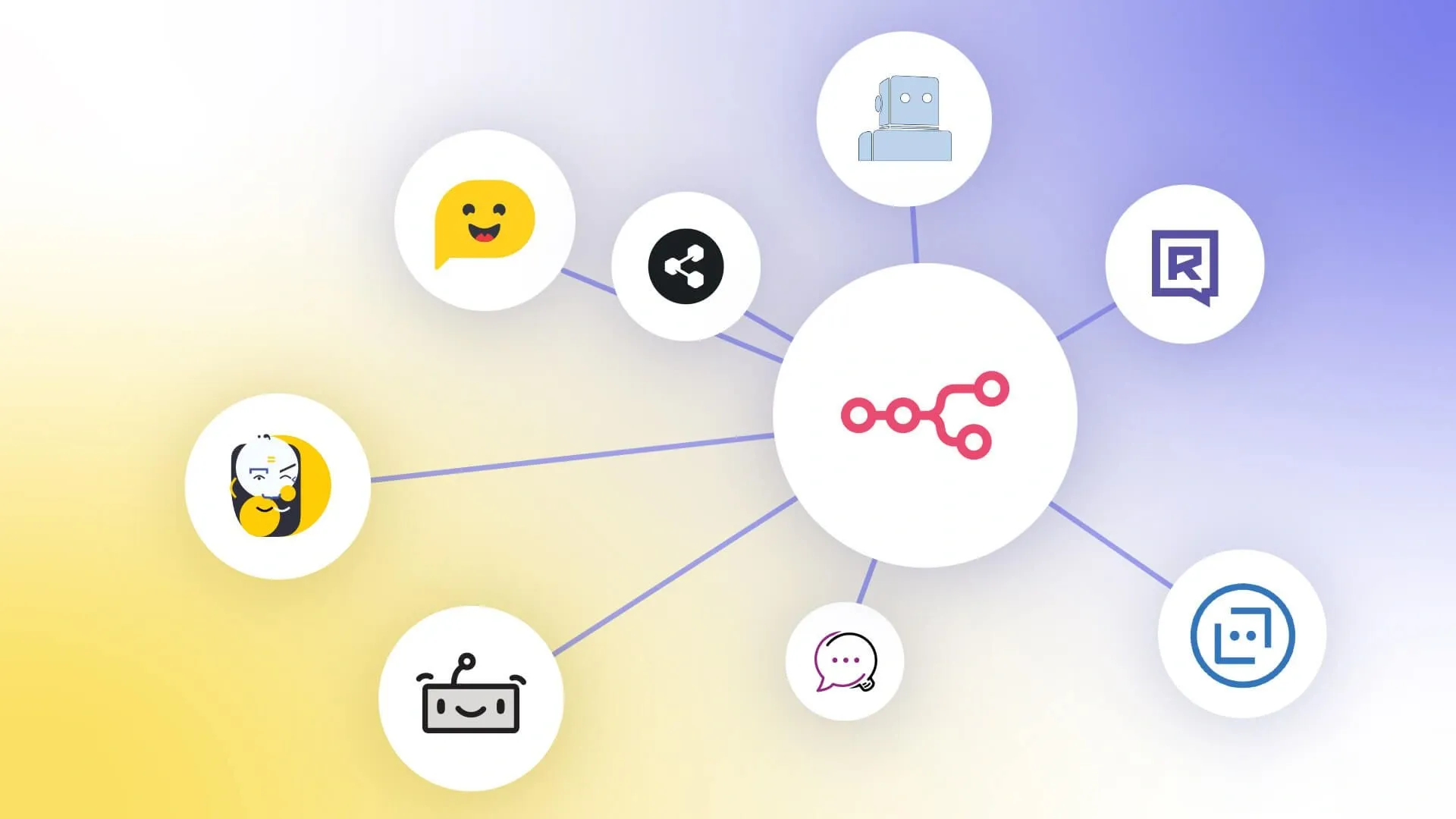
Flexibility and customization options
Open Source Chatbots allow businesses to customize the software according to their needs. Since the source code is publicly available, developers can customize the software to meet the business's unique requirements.
Access to a vast developer community
Open Source Chatbots are developed by a community of developers from around the world, which means that businesses have access to a vast pool of talent and expertise. This also means that Open Source Chatbots continuously evolve and enhance, with the latest features and capabilities regularly added.
Cost-effectiveness
Open Source Chatbots are often free to use, meaning businesses can save significant money on software development costs.
Even if companies choose to hire developers to customize the software, the prices are often significantly lower than the costs of developing proprietary software from scratch.
Proprietary Chatbots
Proprietary chatbots are chatbot solutions developed and owned by a specific company or organization.
Unlike open source chatbots, proprietary chatbots are not freely available for modification or distribution.
Comprehensive support and maintenance
Proprietary Chatbot platforms are often backed by a dedicated support team that offers comprehensive support and maintenance services.
This ensures that businesses have access to expert assistance when needed, which can be invaluable in resolving any issues.
Unique and specialized features
Proprietary Chatbot platforms often offer unique and specialized features that may not be available in Open Source Chatbot platforms.
These features can be tailored to meet the specific needs of a business, providing a competitive advantage in the marketplace.
Streamlined user experience
Proprietary Chatbots are often designed with a streamlined user experience in mind. The interface is often intuitive and easy to use, providing a seamless experience for customers interacting with the chatbot. This will increase customer satisfaction and retention.
Factors to Consider When Choosing between Open Source and Proprietary Chatbots
When it comes to implementing a chatbot solution, businesses and developers have the choice between open source and proprietary chatbots. Both options have their own advantages and considerations that need to be carefully evaluated before making a decision.
Cost: Free vs. Paid
When it comes to chatbots, the price tag can be a deciding factor. Open source chatbots are usually free and can be customized to fit your needs.
Proprietary chatbots, on the other hand, often come with a cost, but may include additional features and support.
Customization: DIY vs. Out-of-the-Box
If you're a fan of tinkering, open source chatbots allow you to dive into the code and make it your own.
However, if you prefer a ready-to-go solution, proprietary chatbots come with pre-built features and integrations, saving you time and effort.
Support: Community vs. Dedicated
With open source chatbots, you'll find a community of developers and users who can help you troubleshoot issues and share ideas.
But if you're looking for dedicated support, proprietary chatbot providers often offer customer service and technical assistance for a smoother experience.
Updates: Frequent vs. Scheduled
Open source chatbots benefit from a community-driven approach to updates, which can lead to more frequent improvements and bug fixes.
Proprietary chatbots, though, have scheduled updates managed by the provider, ensuring a more predictable and stable experience.
Security: Shared vs. Controlled
Security is a concern for any chatbot user. With open source chatbots, you must be proactive in keeping your chatbot secure, as vulnerabilities may be exposed to the community.
Proprietary chatbots have a more controlled environment, with providers responsible for maintaining security and addressing potential risks.
Conclusion
Several factors must be considered when choosing a chatbot solution for your business among Open Source vs. Proprietary.
Ultimately, the decision between Open Source and Proprietary Chatbots comes down to your business needs and goals, technical expertise and resources, and budget and time constraints.
If you have the technical expertise and resources, an Open Source AI Chatbot solution may be the best choice for your business, providing flexibility, customization options, and cost-effectiveness. A Proprietary Chatbot solution may be best if you require comprehensive support and maintenance services.
To choose the best chatbot solution based on your needs, you must consider your specific business requirements and goals, your technical expertise and resources, and budget and time constraints.

